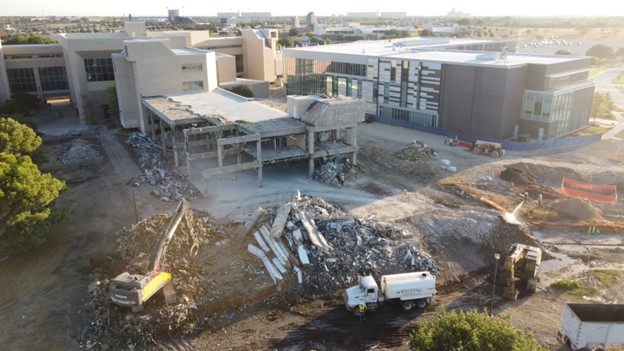In the dynamic landscape of academia, where change is often the only constant, Tarrant County College stands as a beacon of resilience. As TCC Northwest reflects on the college’s September publication of its robust Academic Continuity Plan (ACP), the journey has been nothing short of a saga, marked by the challenges of campus redevelopment and unforeseen disruptions. This is a story of adaptability and strategic planning that positions TCC Northwest as a leader in the ever-evolving world of higher education.
An Academic Continuity Plan (ACP) is more than just a set of protocols; it’s a comprehensive strategy designed to ensure the continuation of academic, business, and student support operations in the event of disruptions. Picture it as a blueprint to maintain educational services and prevent interruptions. In essence, it allows institutions like TCC to redirect resources to address challenges efficiently, rather than scrambling to devise new plans for each unexpected event.
The saga began on September 5th with an unexpected water main break that left the campus without running water, triggering the immediate implementation of the ACP. This incident served as a stark reminder of the importance of preparedness in the face of unexpected disruptions. The Northwest Campus, poised to face its fair share of challenges, including power outages on September 11th and October 25th, all intricately linked to its massive redevelopment, had already laid the groundwork for a resilient response.
Leadership at TCC, including Vice President for Academic Affairs, Dr. Thomas Sosa, praised the specificity and adaptability of the ACP. Sosa, spearheading efforts to ensure academic affairs is equipped with proper technology for remote work, remarked, “I have learned that the College has developed a strong Academic Continuity Plan that is specific enough to clarify expectations for all employees, yet broad enough to apply to a number of situations that may require us to shift to remote instruction and student support services.”
Dr. Diane Hilbert, Assistant to the President, shared insights gained from working diligently on wordsmithing effective communication to employees and students, grappling with the implications of a single misplaced word. The challenge extended to conveying to students that the campus wasn’t closed but had pivoted to remote delivery of services. Hilbert emphasized the importance of clarity, stating, “Having experienced multiple disruptions on campus due to the redevelopment, some of the lessons learned include the need for consistent and clear communication. Implementing the ACP is a shift in how we operate, not a cease of operations.”
The implementation of the ACP ensures that there isn’t a gap in the education or service of students because of unforeseen circumstances and disruptions. TCC Northwest’s experience is not just about overcoming challenges; it’s about emerging stronger, armed with insights and strategies that position them as leaders in navigating the complexities of higher education. As Tarrant County College reflects on this milestone, it is evident that the campus would continue to see its fair share of challenges. TCC Northwest’s journey through campus redevelopment and disruptions is a blueprint for becoming leaders in the higher education landscape. President Zarina Blankenbaker’s words resonate as the college looks forward: “In the face of evolving challenges, an academic continuity plan stands as our bedrock, fortifying our commitment to unwavering service, ensuring that our students’ educational journey remains uninterrupted, fostering resilience and fostering academic excellence.” The experience gained from the implementation of the ACP positions TCC Northwest at the forefront, ready to lead with unwavering commitment, adaptability, and a clear vision for academic excellence in the years to come.

